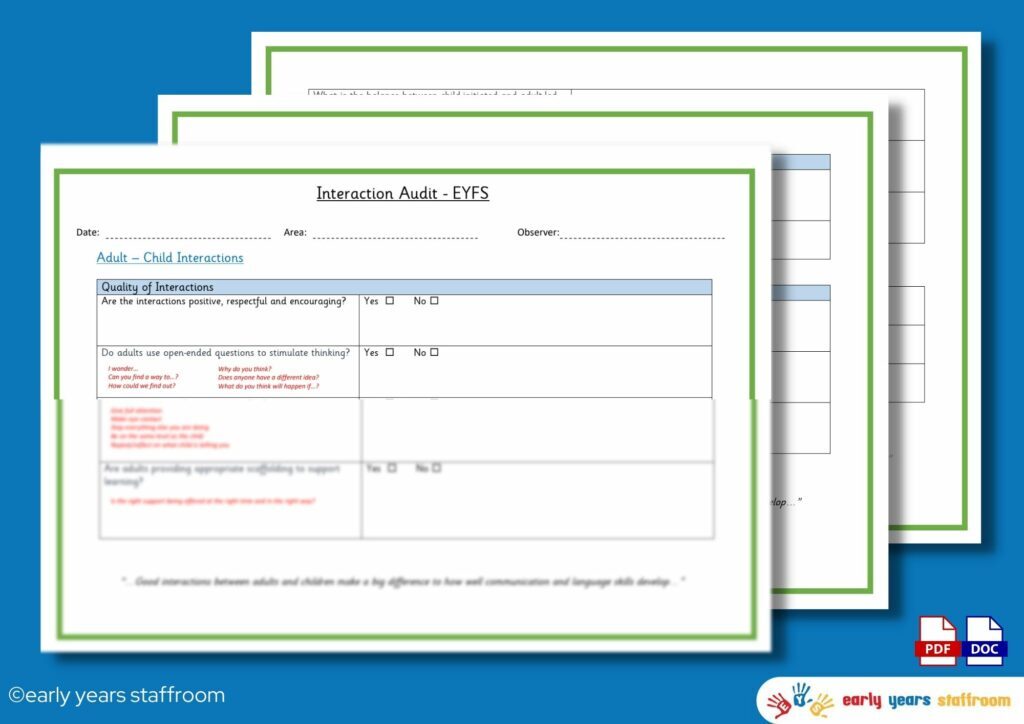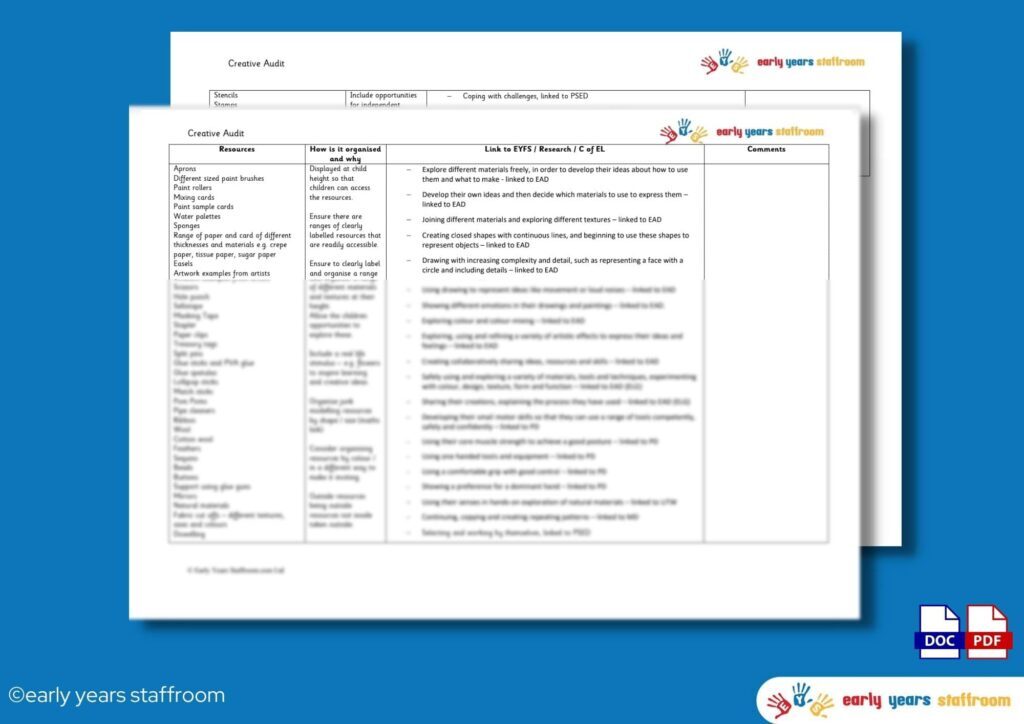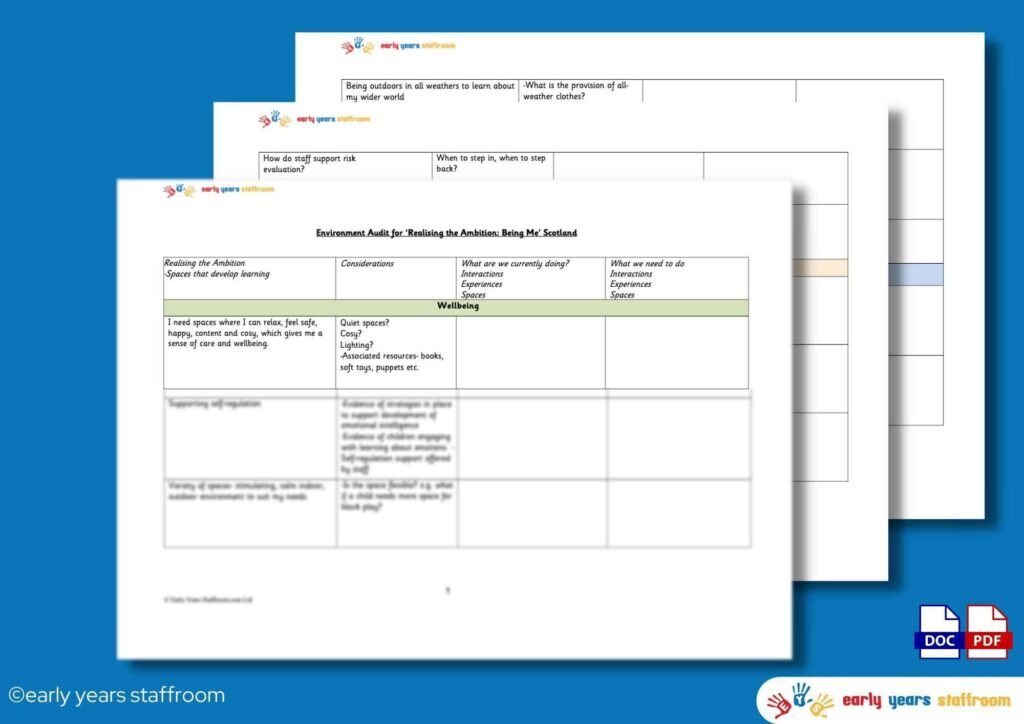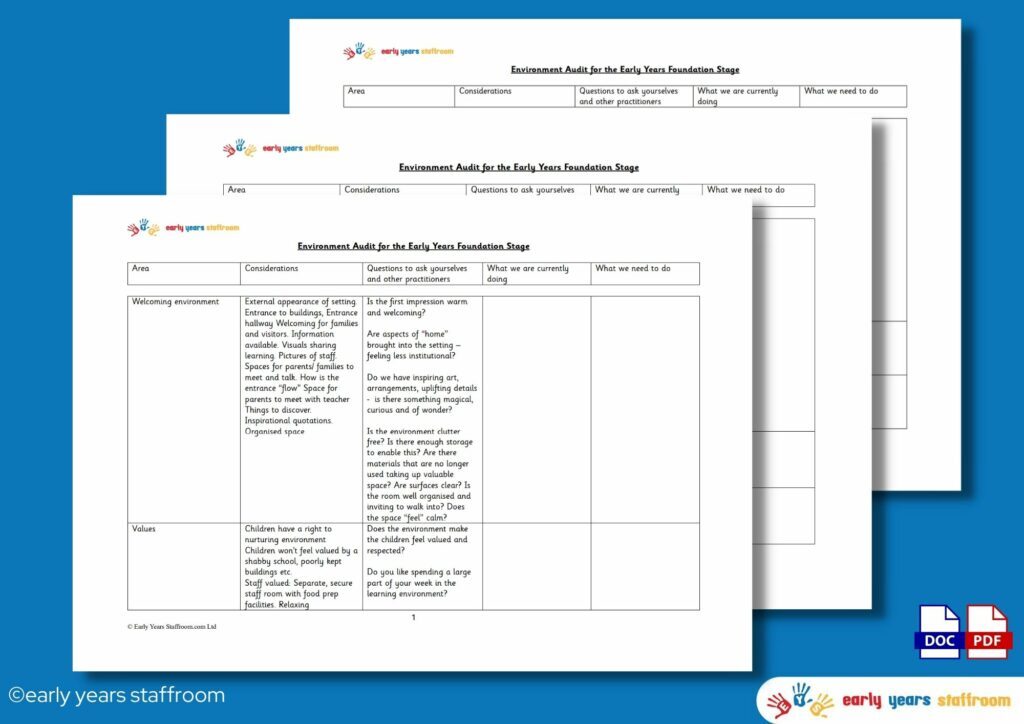Interaction Audit

Audit the interactions in your setting with ideas of how to improve interactions.
Conducting an interaction audit in early years education is highly beneficial for several reasons:
Assessing Quality of Interactions: An interaction audit helps educators evaluate the quality of interactions between staff and children. This includes looking at how teachers communicate, engage, and respond to children, which is crucial in creating a supportive and nurturing learning environment.
Identifying Training Needs: Through an interaction audit, educators can identify areas where staff may need additional training or support. This ensures that all staff are equipped with the necessary skills and knowledge to effectively interact with and support young children’s development.
Enhancing Child Development: Early years are critical for a child’s development. Positive interactions can significantly influence a child’s social, emotional, cognitive, and language development. An audit helps ensure that interactions are conducive to fostering these developmental areas.
Promoting Inclusive Practices: An interaction audit can highlight how well staff are including all children in activities, especially those with special educational needs or from diverse backgrounds. This promotes inclusivity and ensures that every child receives appropriate attention and support.
Improving Communication Strategies: The audit can reveal the effectiveness of current communication strategies and suggest improvements. Effective communication is key to understanding and meeting the individual needs of children.
Strengthening Relationships: By focusing on interactions, educators can strengthen the relationships between staff and children. Strong, positive relationships are foundational for a safe and welcoming learning environment.
Supporting Emotional Well-being: The audit can assess how well staff are supporting the emotional well-being of children, which is essential for their overall development and learning.
Ensuring Consistency: Consistency in interactions across different staff members is important. An audit can help ensure that all children receive a consistent level of care and engagement, regardless of who is interacting with them.
Feedback for Continuous Improvement: An interaction audit provides valuable feedback for educators and staff, allowing for continuous improvement in practices and approaches in early years settings.
Not quite what you were looking for? Search by keyword to find the right resource, or please email us to request a resource at admin@earlyyearsstaffroom.com.













